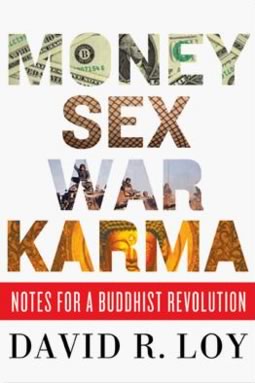In today’s post I’m going to continue explaining why Buddhism, despite there being religious organizations called Buddhism, is not inherently a religion and is a technique and way of living that is applicable to anyone, EVEN IF they choose to continue identifying with a religion. I cannot think of a more important use of my time here at Beliefnet.com and for the Interdependence Project. If I believe, as I do, that the Buddhist way of being is one that fosters compassion, kindness, and cooperation in myself and others, I should want it to be as widespread as possible. And if a condition of being “Buddhist” is that you must forsake your religion (Christianity, Muslim, Jewish, or otherwise) for something called a “Buddhist religion”, the chance of Buddhism spreading wide becomes exponentially slimmer and I would have sorely misunderstood what the four noble truths mean. I’d like to explain today at least part of why I do not believe this is the case.
The main issue I’d like to focus on in today’s brief post is that
Buddhism, as a path to liberation from dissatisfaction, does not
condone war and killing others on the way to your own liberation.
Buddhists do not defend physical or mental territory with knives, guns,
and bombs. Although religions like Judaism, Christianity, Muslim, and
others all have beautiful teachings and have been engines of
civilization at various points in history, each of them also succumbs
to combat when their geography or beliefs are challenged. There is a
whiff of the primitive origins of religion that makes itself known
whenever religious organzations (or governments claiming divine right)
kill other people for not believing in the spiritual or physical
boundaries that they have drawn.
When I hear of wars being conducted with the blessing of Christ, or a
Jewish God, or a Fatwah, or in the name of a Mormon divinity, I cannot
help but picture a caveman with a stone in his hand standing outside
his rock house bashing in the head of a threatening neihbor going “Me
mine, no come here.” Spiritual teachings that are truly based in
compassion and interdependence, and offer those who follow the path the
tools to actually manifest compassion, do not require guns, knives, and
bombs to defend. They simply are.
Because war, murder, and bloodshed are a common feature of every major
world religion (even to the point of being included in the texts that
form the basis for these religions), and Buddhists (with a very few
exceptions) do not engage in killing others to prove that Buddhism is
the best way, on this point it seems quite different from other
religions. Furthermore, while religious war is justified in major
world religions as different from teachings against killing as
justified by “divinity”; Buddha made no such distinction, making us
responsible for our own decisions rather than giving responsibility up
to a deity. On this point as well, Buddhism diverges sharply from
other religions which each offer some version of “because God willed
it” when it comes to killing in the name of God.
Buddhism also does not require any kind of conversion process or ritual
in order to follow the teachings, as compared to the conversion
processes one must go through to go from being a Jew to Christian or
vice-versa, and the empahsis in most religions on birth (bloodlines) as
a signifier of belonging. One needs simply to have a dedicated
contemplative practice and ideally study with a sangha (or on your own
if no community is available) and you are on the way..
In this sense, I would say that American Democracy is more of a
religion than Buddhism, with its requirements of birth as signifier of
belonging, elaborate conversion process for those who were not born
here, invokation of God as divinely ordaining war, money, and
allegiance, and defense of geographical and philosophical boundaries
through guns and bombs.
Finally, a thought experiment. A spaceship leaves Earth on a five year
journey to a distant galaxy. On this ship are 500 people – 100 Jews,
100 Christians, 100 Muslims, 100 Atheists, and 100 Buddhists. Within
each of these groups are varying degrees of religious moderation,
though each of the 500 has been profiled for having high tolerance of
others views.
Two years in, the ship loses contact with Earth and is adrift in an
inky black galaxy. Decisions must be made about resources, the
direction of the ship, and how to run things on board. Each week, a new
section of the ship must be shut down as power, water, and food is
dwindling.
The most devout members of each religious group (the Orthodox Jews,
the Evangelical Christians, etc) naturally become increasingly sure
faith requires (to not claim divine authority would be to betray their
faith). They try to hoard resources for “their people”, and
increasingly try to defend smaller and smaller pieces of territory.
What do the Buddhists do? Who starts killing who first? Do the
Buddhists defend themselves, if attacked? If all the other religious
become increasingly devout, but the Buddhists simply continue to be,
what does that mean? What does it mean if people from some of the other religions begin meditating with the Buddhists?

